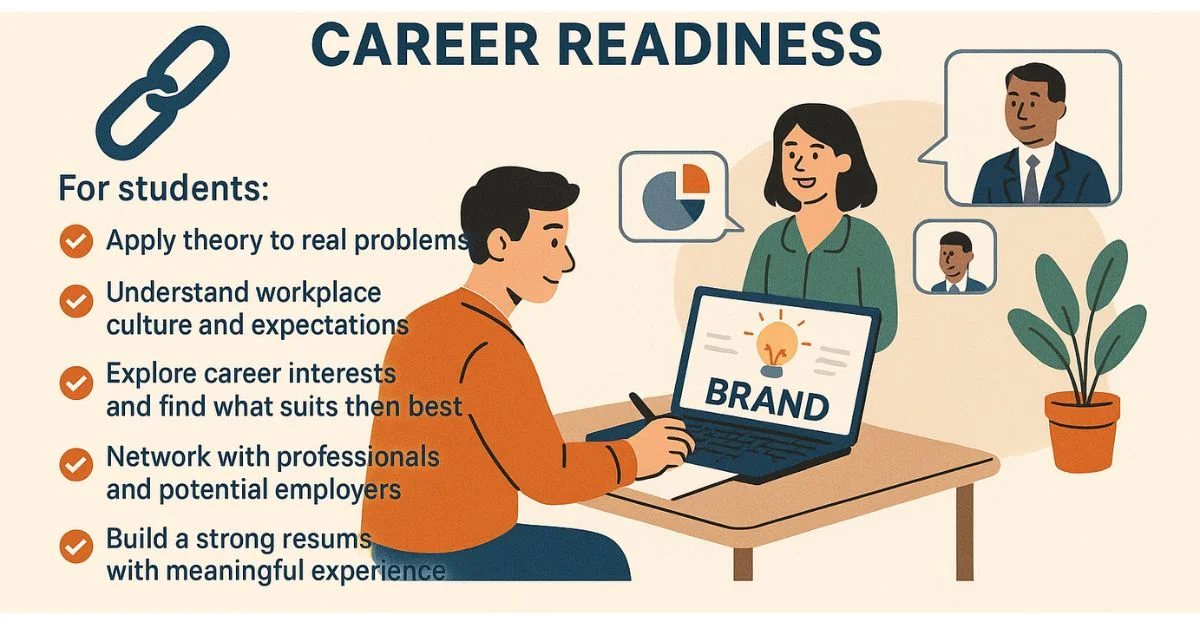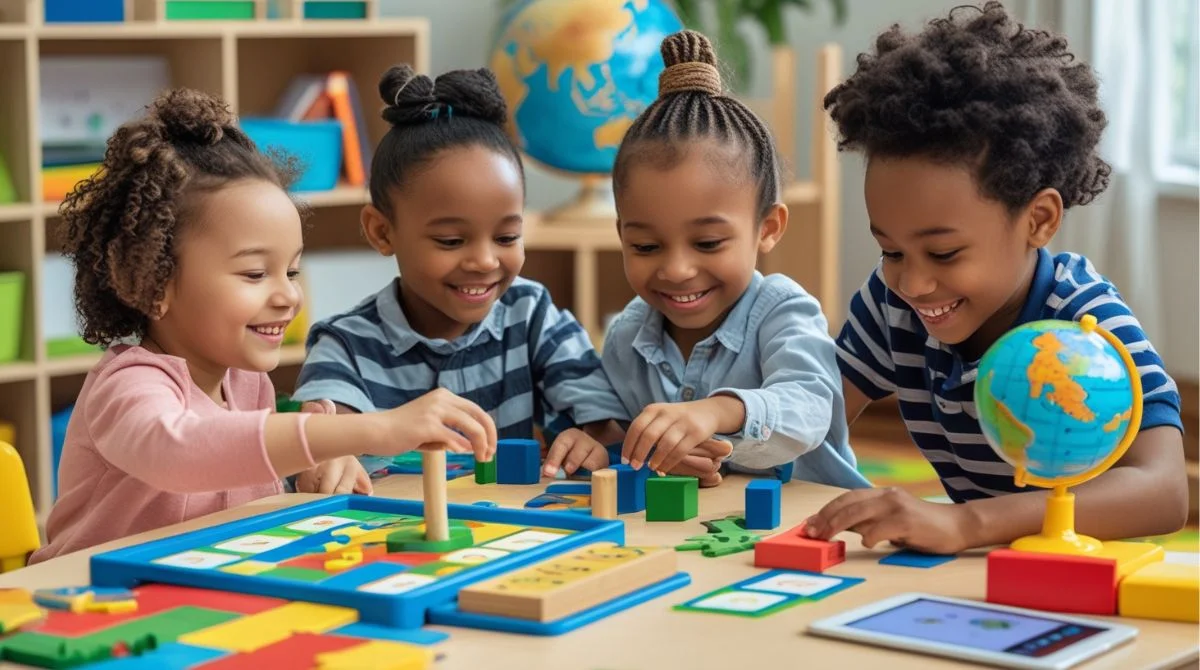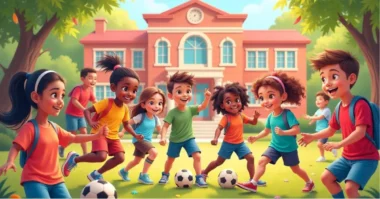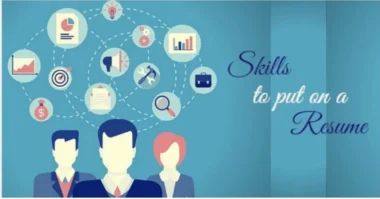Table of Contents
In today’s advance world, preparing for a successful career goes beyond just getting good grades. Employers are looking for something more real-world skills, problem-solving abilities, teamwork, and leadership. That’s where experiential learning comes in. It is a way of learning by doing, not just reading from a book or listening to lectures. It allows students and young professionals to get hands-on experience while they learn, helping them become job-ready even before they graduate.
Concept of Experiential Learning
Experiential learning is a method of learning through real experience. Instead of only studying theories in a classroom, students take part in activities that allow them to apply what they have learned in real-life situations. This approach helps them understand topics deeply and remember them better.
Some common forms of experiential learning include:
- Internships
- Volunteering
- Job shadowing
- Cooperative education (co-op)
- Service learning
- Research projects
- Case studies and simulations
These experiences help students develop not just technical knowledge but also soft skills like communication, teamwork, time management, and problem-solving.
Importance of Experiential Learning
The traditional model of learning focuses mostly on theory. Students read textbooks, listen to lectures, and take exams. While this helps build a foundation of knowledge, it often lacks the practical aspect of real work. Experiential learning fills that gap.
When students engage in real-world tasks, they:
- Learn faster and remember more
- Make mistakes and learn from them
- Develop critical thinking and decision-making skills
- Get comfortable in professional environments
- Gain confidence in their abilities
These benefits directly connect to career readiness. Employers want to hire people who are not only smart but also adaptable, reliable, and ready to take initiative. Experiential learning is one of the best ways to prepare students for the demands of the modern workplace.
The Link Between Learning and Career Readiness
Career readiness means having the skills, knowledge, and attitude to start and grow in a professional career. This includes both hard skills (technical skills related to a specific job) and soft skills (skills that help people work well with others).
It helps students:
- Apply theory to real problems
- Understand workplace culture and expectations
- Explore career interests and find what suits them best
- Network with professionals and potential employers
- Build a strong resume with meaningful experience
For example: a marketing student might understand the concept of branding from a textbook. But working on a brand strategy for a real local business through a class project brings the idea to life. They see how branding affects customer perception, how team collaboration works in real campaigns, and how to adapt strategies based on feedback.
Types of Experiential Learning Activities
A deeper look at different types of experiential learning opportunities and how they contribute to career readiness.
1. Internships:
Internships are short-term jobs that give students a chance to work in a professional setting related to their field of study. They may be paid or unpaid, and they are often part of a college program.
2. Service Learning
This is a mix of volunteering and education. Students work on projects that serve the community while also achieving learning goals.
3. Co-ops (Cooperative Education)
Co-ops are structured programs where students alternate between full-time work and school semesters. This allows them to work in their field while still studying.
4. Research Projects
Students in science, health, or social studies may take part in research projects. This gives them a chance to explore real problems, collect data, and develop solutions.
5. Study Abroad
Studying in another country helps students develop cultural understanding, language skills, and global thinking. It’s a type of experiential learning that builds adaptability.
6. Entrepreneurship Projects
Starting a business or working in a startup teaches students about risk-taking, innovation, and leadership. Even if the venture doesn’t succeed, the learning experience is priceless.
Key skills of Experiential Learning
Here are some key skills students gain from these experiences:
- Communication: Writing emails, giving presentations, and speaking with team members
- Time Management: Balancing tasks and meeting deadlines
- Teamwork: Working with diverse people and sharing responsibilities
- Leadership: Taking initiative and guiding projects
- Problem-solving: Finding solutions to real challenges
- Adaptability: Handling change and uncertainty
- Digital literacy: Using modern tools and platforms
Conclusion
Experiential learning is one of the most powerful tools students have today to become career-ready. It turns ideas into actions, classrooms into job sites, and students into professionals. In a world that values agility, creativity, and collaboration, learning by doing is no longer optional. It’s essential. Whether you’re in high school, college, or already in your career, it’s never too late to seek out real-world learning opportunities. The skills you build, the people you meet, and the lessons you learn can shape your future in ways that no textbook ever could.






